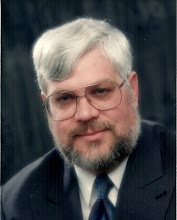The Role of Science in Western Culture (cont.)
Technology as the Fruits of Science
Up to this point, I’ve talked about the impact of science on our lives in terms that are pretty abstract and obscure. Even though we may vaguely grasp the way science shows us how the atom works or how the universe began, that understanding has little to do with how we go about our daily routine. In fact, though, science plays a key role in almost every moment of each day because of the critical role that science has played in the creation of the technology that defines how we live in the modern world. Because we recognize this relationship, our dependence on technology gives greater strength to the authority of science in our minds.
A revolution began at the end of the nineteenth century when science was applied more and more to the creation of new technology. Before that time, advances in technology were mostly evolutionary, the result of practical experimentation: New things were tried and, if they turned out to improve how something worked, they continued to be used. If they didn’t, then they were discarded. Although this sounds a lot like the scientific method, it is different because it was purely a trial-and-error process. The goal was to make the thing itself better, not to learn about the basic principles of nature that allowed the new thing to work. For this reason, invention was more craft than science, that is, the pursuit of knowledge for its usefulness, not for its own sake. Even the best-known inventor, Thomas Edison, developed most of his products through trial and error instead of applying scientific theory. His famous saying that invention is one percent inspiration and ninety-nine percent perspiration shows this: There’s no mention of any use of scientific theory, just new ideas and effort.
In a way, Edison was among the last of the “old-school” inventors. As advanced scientific knowledge began to flower in the nineteenth and early twentieth centuries (Einstein published his first paper in 1905), the discoveries that resulted began to be used to improve old technologies and to create new ones. This trend was not entirely new, of course. After all, Benjamin Franklin studied the nature of lightening and showed that it is a flow of electricity, so he was able to invent the lightning rod as a way to safely channel the electricity from the air to the ground through a wire instead of through the building itself. But this way of applying scientific discovery to the art of invention continued to be more the exception than the rule until the twentieth century.
Physical theories of electricity and magnetism inspired the greatest results among inventors at the beginning of the twentieth century. Early nineteenth-century scientists like Michael Faraday, Luigi Galvani, Alessandro Volta, André-Marie Ampère, and Georg Simon Ohm developed the scientific knowledge of electromagnetism that was the foundation for technologies created by later nineteenth-century engineers such as Nikola Tesla (electric motors), George Westinghouse and Thomas Edison (electrical generation and transmission), Samuel Morse (the telegraph), and Alexander Graham Bell (the telephone), and in the following century, such inventions as radio, the vacuum tube, and the cathode ray tube used in the first TVs and computer monitors.
Electronic gizmos are the most obvious product of science, but just about every invention of the twentieth century was at least helped along by science. For example, the Wright Brothers’ knowledge of the Bernoulli Principle (the unequal pressure that gives wings their lift and propellers their thrust) made it possible for them to invent the airplane. The theories of James Clerk Maxwell and Ludwig Boltzmann led to the invention of refrigeration. And on and on.
Most of us are at least vaguely aware of how the scientific method has sped up the development of the technology that we use every day, and this helps give the scientific process a greater credibility than can be found in any other area of human activity. Religion, on the other hand, appears regressive by comparison because it is mostly based on the authority of writings and traditions from the ancient past. It’s no surprise, then, that as technology becomes more and more central to the way we live, religion is losing its influence, receding to the background and fading in importance.

No comments:
Post a Comment